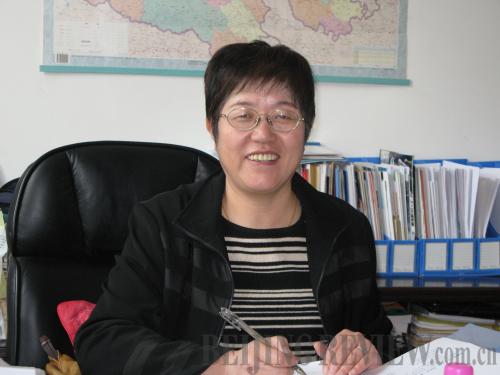|
 |
|
(COURTESY PHOTO) |
ChinAfrica: How did the partnership between Qinghai and Benin begin? Why did you choose each other?
Cao Ping: In November 2008, we sent a cultural delegation to visit Benin. We held several exhibitions there to show folk art and crafts products. We also held some seminars on helping to increase incomes in poor populations through the development of a handicrafts economy. Officials from the Beninese Ministry of Handicrafts and Tourism asked if they could visit Qinghai to learn more. We organized the trip and since then the connection has grown.
Qinghai is among China's less developed provinces, while Benin is one of the world's underdeveloped countries. I think there is a natural sense of intimacy between us [as a result]. That's why we easily understand each other.
In October 2009, you sent Wang Fengying, a paper-cutting artist to Benin to teach her craft in Benin. How did it go?
She didn't go alone. There was another artist named Li Lianxia who accompanied her to teach Buddhist Thangka filigree (working fine wire into delicate patterns). Their courses were successful because the locals loved them very much. Their students even organized an exhibition. It is said that a paper cutting association and a filigree association were later set up, and some people have already begun jobs as craftsmen.
Are there many people making a living from handicrafts in Qinghai?
Absolutely. Qinghai has a long history in making folk handicrafts. The handicrafts economy is an important part of our cultural industry. There are nearly 50,000 people working in this sector.
Is developing handicrafts a strategic move for the province?
The Central Government's 12th Five-Year Plan (2011-15) emphasizes making China's cultural sector a "pillar industry." Construction of public cultural facilities and services, and promotion of innovative cultural economy are underway. Qinghai has had steady growth in recent years regarding [construction]. Since we are not strong in animation and film, we've put the focus on developing folklore resources. These include handicraft design and manufacturing, folk songs, dance, folklore books and audio-visual products, handicraft technique training and cultural tourism.
What's most difficult about building a cultural industry in a less-developed region like your province?
The biggest problem lies in ideas and creativity, not money. In the old days, things might have been difficult because of a lack of money. Now we have to figure out what to do with the money on hand. We need ideas to create wealth. Of course, talented people are another key factor. That's why we have emphasized manpower training in past years. We've been offering handicraft skills training courses to poor families so that they can gain access to a better life. We've also started to hire college students to do artistic designs for our handicraft products.
What has Qinghai learned from its cultural exchange with Benin? Do you have plans to extend connections to other foreign countries?
Cultural exchange means not showing whose clothing is more gorgeous in a dance. People must really benefit [from it]. We're impressed by the kindness and hospitality of the Beninese people, [and have] learned that policymakers in Benin are trying hard to build wealth through developing industries like handicrafts.
Given Qinghai's economic underdevelopment, it's not easy to finance [activities] often abroad. However, we cherish every opportunity if we can. I think any future plan will be based on multilateral efforts between our ministries and embassies, and those of our foreign partners. China's Ministry of Culture is planning to further enhance Qinghai-Benin relations in 2011. We hope the two will reach some agreements on cooperation between our poverty-stricken areas. |